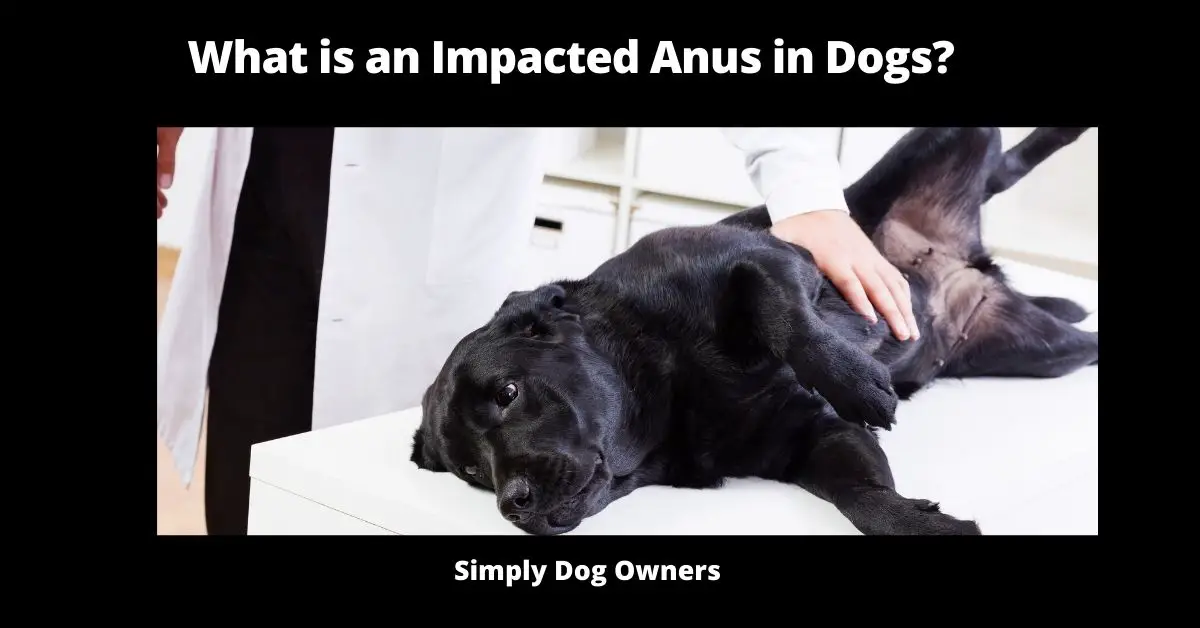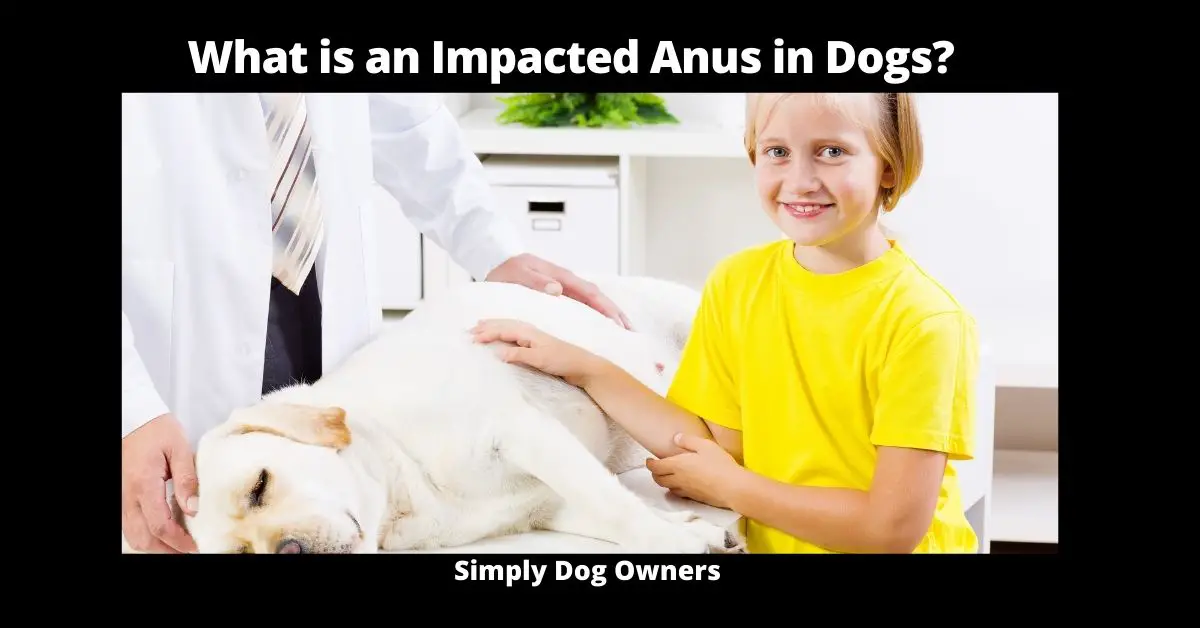Is when Fecal Matter, Poop becomes lodged in the anus and will not come out. Treatments include Laxatives, Enemas, antibiotics, and in severe cases surgery.
What is an Impacted Anus in Dogs?
If your dog is having trouble pooping, he may have an impacted anus. This condition is caused when poop becomes lodged in the rectum or colon, making it difficult for the dog to expel. In severe cases, the impacted poop can cause a blockage and lead to serious health problems. In this blog post, we will discuss what an impacted anus is in dogs, the symptoms to look out for, and how to treat this condition.
What is an Impacted Anus in Dogs and what are the Symptoms?
An Impacted anus (or anal glands) is a condition where the glands that are located at the opening of your dog’s anus become filled with fluid and can’t be expressed. In most cases, this happens because they have rectal tumors or their stools aren’t firm enough to empty them.
Impacted Anus can get infected, and it is a very painful condition for your dog. You’ll notice signs like scooting, licking the anal area constantly or having difficulty defecating. If you suspect that your dog has an impacted anus, take him to the vet as soon as possible so he can examine him and provide treatment. What is an Impacted Anus in Dogs?
Symptoms Impacted Anus in Dogs
- Licking
- Dragging Bottom
- Odor
- Pain
- Scooting
What are the Causes of an Impacted Anus?
There are many potential causes of an impacted anus, including:
- Constipation – When a dog is constipated, the stools become hard and dry, making it difficult for them to pass.
- Hemorrhoids – Hemorrhoids are swollen veins in the rectum that can cause pain and bleeding.
- Rectal Tumors – Rectal tumors can prevent the stool from passing through the rectum, leading to an impacted anus.
- Fecal Impaction – If a large amount of poop accumulates in the colon, it can become lodged and cause an impacted anus.
- Diarrhea – Diarrhea can cause the stools to become loose and watery, making them difficult to expel.
- Cysts – Cysts can form on the anus, making it difficult for the dog to pass stool.
- Enlarged Prostate – An enlarged prostate can make it hard for a dog to poop and lead to an impacted anus.
How is an Impacted Anus in Dogs Treated?
- If your dog has an impacted anus, the vet will likely prescribe antibiotics to treat any infection that may be present. He or she may also recommend laxatives or enemas to help clear out the rectum and colon. In some cases, surgery may be necessary to remove the impacted poop.
- Treatment of impacted anal glands varies depending on the cause, but your veterinarian will likely prescribe antibiotics or anti-inflammatory medications to treat infection and inflammation. They may also recommend laxatives or suppositories if constipation is causing this problem
Preventing an Impacted Anus in Dogs
- There are a few things you can do to prevent your dog from developing an impacted anus:
- Feed him a high-quality diet that includes plenty of fiber.
- Make sure he gets enough exercise – regular exercise helps keep
- Straining to have a bowel movement,
How is an Impacted Anus Treated?
- If your dog has an impacted anus, he will need treatment from a veterinarian. Treatment options may include:
- Enema – This involves injecting fluid into the rectum
- Antibiotics – the vet will likely prescribe antibiotics to treat any infection that may be present.
- Laxatives – He or she may also recommend laxatives or enemas to help clear out the rectum and colon.
- Surgery – One of our dogs had it so bad they ruptured their colon at their anus. We had to have surgery done. The dog is fine but $1100 later. About 3 years ago
- In severe cases where surgery is required, there are two options: fistulotomy (removing part of the rectal wall) or abscess removal through
What is Fistulotomy Surgery in Dogs?
When a Veterinarian performs a fistulotomy on a dog, it is a procedure to remove an abnormal passageway between two or more body parts or organs. It is most commonly done when there are complications after surgery from the development of a sinus tract.
A sinus tract can form as a result of inflammation and infection taking place in the tissue where surgery was performed. Fistulotomies may also be used to repair cleft palates and anal fistulas that have occurred due to Crohn’s disease.
When performing this type of surgery, the vet will create another small incision next to the original cut made during your dog’s previous operation so they can get inside the cavity caused by inflammation and infection buildup in that. This will allow them to remove the infected and inflamed tissue, as well as any abscesses that have formed.

After the surgery is complete, your veterinarian will most likely place a drain in the surgical site to help evacuate any pus or fluid accumulation. The sutures used will also be dissolvable so there is no need for their removal later on.
It is important that you keep a close eye on the surgical site following fistulotomy surgery and report any signs of infection such as redness, swelling, discharge, or fever to your vet immediately. If left untreated, an infection can cause serious health problems for your dog.
Fistulotomy surgery may seem like a daunting procedure but it can be lifesaving for dogs who have developed tracts and abscesses.

